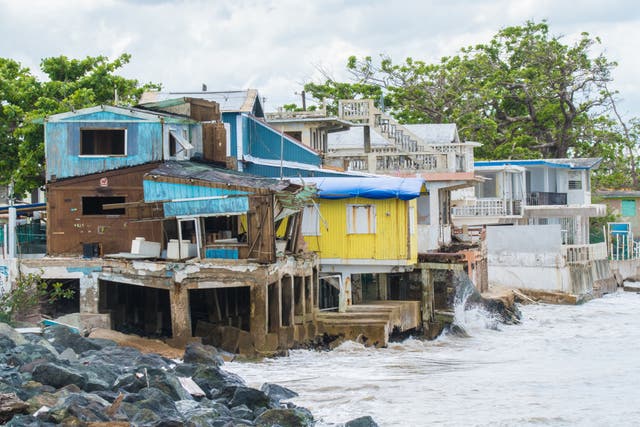Climate crisis to blame for at least ‘1,500 UK heatwave deaths’ since 2000, study estimates.

Research produces ‘very broad estimate’ of the number of deaths from the 2003 and 2018 UK heatwaves that can be attributed to human-caused climate change.
At least 1,500 heatwave deaths in the UK can be attributed to the climate crisis, a new study estimates.
The research makes a “very broad estimate” of the number of deaths from the 2003 and 2018 UK heatwaves that can be attributed to human-caused global heating.
It finds that the UK’s scorching 2003 heatwave was responsible for approximately 2,234 deaths. Of these, 1,117 can be attributed to human-caused climate change, according to the analysis.
Meanwhile, Britain’s 2018 heatwave – which saw temperature records broken in cities such as Glasgow and Belfast – caused around 863 deaths, with 432 of these attributable to climate change, the results suggest.
However, “much more work is needed to refine the estimates”, explains study lead author Ben Clarke, a PhD student at the University of Oxford’s Environmental Change Institute.
“Researchers have previously calculated the increased likelihood of these heatwaves due to human-caused climate change,” he told The Independent.
“Meanwhile, other researchers have shown that excess deaths occurred during these events. We made a very broad estimate of the attributable deaths by combining this information.”
The study of how human-caused climate change could be affecting the frequency and intensity of extreme weather events such as heatwaves, floods and storms is known as “event attribution”.
A landmark attribution study found that the UK’s 2003 was made at least twice as likely by human-caused climate change.
Further research has found that the UK’s 2018 heatwave was made up to 30 times more likely by human-caused climate change.
The new research, published in the journal Climate Risk Management, draws information from these kinds of studies to make estimates about the extent to which the deaths and financial damages caused by extreme weather events can be attributed to climate change.
The approach is part of a new method for studying past extreme weather events that fully considers their impacts and the links to the climate crisis, the authors say.
“We can and should record extreme weather events, their impacts, and the link to climate change because they are experiences that we can learn from,” said Mr Clarke.
To demonstrate their framework, the researchers focus on past extreme weather events occuring in the UK and in Puerto Rico from 2000 to 2019.
In addition to lives lost to heatwaves in the UK, the research also looks into the damages caused by flooding.
The study finds that, from 2000 to 2016, four major UK floods caused around $18bn (£13bn) in damages. Of this, around $9bn can be attributed to human-caused climate change, according to the estimates.
For Puerto Rico, the researchers study both the number of lives lost and damages caused by Hurricane Maria, a deadly category 5 storm that devastated the country in 2017.

(Getty/iStockphoto)
The research estimates that the hurricane caused around 4,645 deaths in Puerto Rico, of which around 3,670 could be attributed to human-caused climate change.
In addition, the hurricane caused around $68bn in damages, of which $54bn could be attributed to human-caused climate change.
The methods demonstrated in the study could be used by individual countries to help them quantify the loss and damages they have incurred as a result of the climate crisis, said Dr Friederike Otto, study author and associate director of the Environmental Change Institute.
“We know very well how much greenhouse gas each country has emitted and we have agreed-upon metrics to calculate this, which is important for countries to pledge emission cuts,” she said.
“But the Paris Agreement also requests that countries set out their planned adaptation measures and how they are going to deal with already occurring loss and damages from climate change – and for these we do not have metrics, nor national inventories.
“I strongly believe this needs to change. If countries had to publish their annual deaths from climate change, the loss and damages would be seen as the matter of life and death that they are.”
The findings of the study are “really interesting”, Prof Peter Stott, a leading attribution scientist from the UK’s Met Office who was not involved in the research, told The Independent.
“It is an attempt to set out a scheme for developing an inventory of extreme weather events that incorporates the contribution to the impacts – including financial losses and deaths – from human-induced climate change,” he said.
“I think that care needs to be taken in the use of such data. For example, it is hard to make them comprehensive, especially for countries with incomplete reporting of the impacts of extreme weather events. Nevertheless, I find this a valuable contribution to the debate about climate change in recognising and then quantifying the large costs associated with our changing climate.”
2 March 2021
INDEPENDENT





